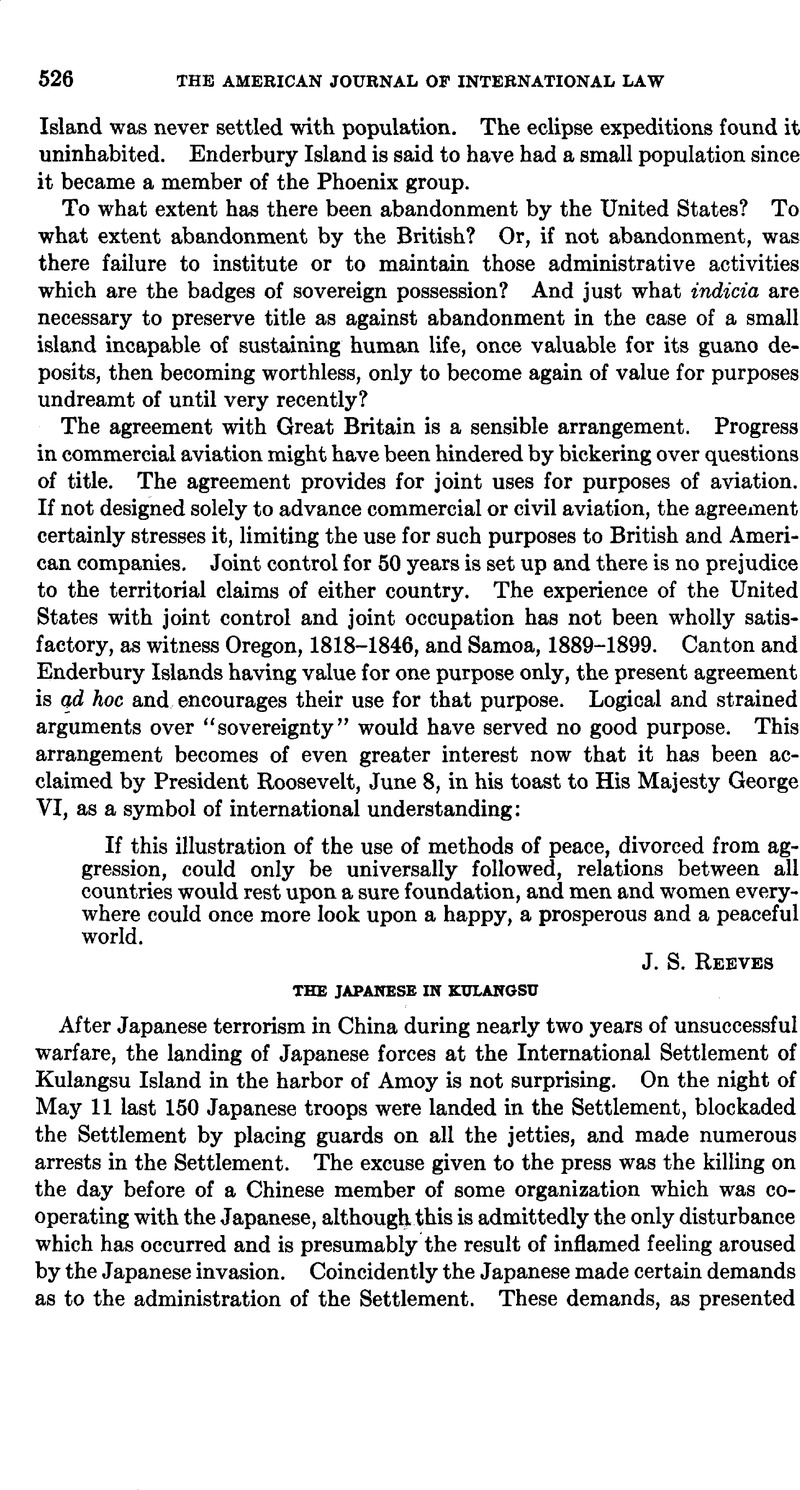No CrossRef data available.
Article contents
The Japanese in Kulangsu
Published online by Cambridge University Press: 12 April 2017
Abstract

- Type
- Editorial Comment
- Information
- Copyright
- Copyright © American Society of International Law 1939
References
1 The legal basis of these International Settlements may be the Chefoo Convention of Sept. 13, 1876, between China and Great Britain, which provided in Art. 2 that in all treaty ports, whether opened by earlier or later agreement, where no settlement area has been defined, it will be the duty of the British Consul, acting in concert with his colleagues, the consuls of other Powers, to come to an understanding with the local authorities regarding the definition of the foreign settlement areas. The United States and probably other countries have the advantage of this convention by virtue of the most-favored-nation clause. See the treaties of 1844, 1858, 1868, 1880 and 1903 between the United States and China.
2 The preamble of the Land Regulations states the legal basis of the Settlement and gives a summary of the municipal functions delegated, as follows:
“China establishes Kulangsu as a Settlement in order that due provision may be made for constructing roads and jetties and keeping them and existing roads and jetties in repair, for cleansing, lighting, watering and draining the Settlement, establishing and maintaining police force thereon, making sanitary regulations, paving wages and salaries of persons employed in any Municipal Office or capacity and for raising the necessary funds for any of the purposes aforesaid, the following regulations are hereby drafted and submitted to the Chinese Foreign Office for discussion with the Foreign Ministers and subsequent confirmation by Imperial Rescript.”
The body of the Land Regulations sets forth the boundaries of the Settlement and provides for the annual meeting, the qualifications of voters, the number and qualifications of Councillors, the powers of the Council, and other machinery for carrying out the purposes mentioned in the preamble. China reserves the right to collect the land taxes and to establish a Mixed Court like that at Shanghai.
3 See editorial in this Journal, Vol. 32 (1938), p. 314.




